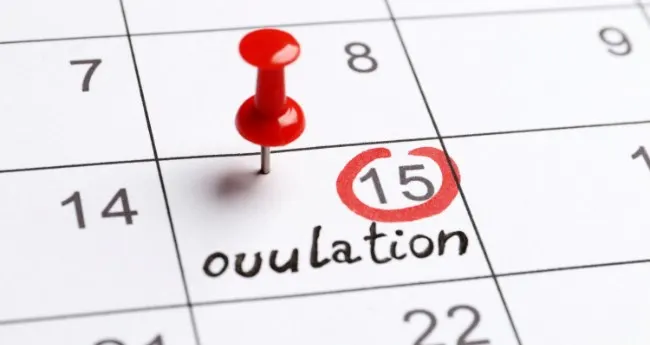Ovulation & Stress: Can Stress Affect Your Fertility?

In the intricate and complex world of reproduction, ovulation plays a pivotal role, marking the prime time for conception. However, amidst the demands and pressures of modern life, stress can cast a shadow over this delicate process. Many may have questions like ‘Can stress cause you to not ovulate?’ or ‘How stress affects ovulation?’ To know the answer to these questions it is imperative to understand the profound influence of stress on ovulation and reproductive health. Let us delve into the intricate interplay between stress and ovulation and try to understand this critical relationship.
What is Ovulation?
Ovulation is a key event in the menstrual cycle, where a mature egg is released from the ovary and travels down the fallopian tube, ready for fertilisation by sperm. This process typically occurs around midway through the menstrual cycle, approximately 14 days before the start of the next period. Ovulation marks the peak of a woman's fertility, providing a window of opportunity for conception. Understanding when ovulation occurs and tracking its signs is essential for those trying to conceive.
Signs of ovulation include subtle changes in basal body temperature, with a slight rise occurring after ovulation. Additionally, cervical mucus undergoes a transformation, becoming clear, slippery, and stretchy, resembling egg whites. Another indicator of ovulation is increased vaginal discharge, which becomes thin, watery, and abundant, facilitating sperm movement towards the egg.

All this change in vaginal discharge may make you feel uncomfortable and uneasy. Which is why it is recommended that you use good quality panty liners such as those offered by Always to manage discharge. Try the Always Comfort Protect Panty liners which have a flexible and comfortable fit so you barely feel a thing. These are dermatologically tested to be gentle on your skin. Its fresh scent with odour-neutralising technology keeps you fresh and confident.
Can Stress Affect Ovulation?
We know that stress affects your period. And the notion that stress can affect ovulation is not merely anecdotal; it is grounded in scientific evidence. Stress, whether physiological or psychological, triggers a cascade of hormonal responses. This can disrupt the delicate balance necessary for ovulation. Cortisol, often dubbed the "stress hormone," can interfere with the production of gonadotropin-releasing hormone (GnRH), a key player in the ovulatory process. This disruption can, in turn, suppress the release of luteinizing hormone (LH) and follicle-stimulating hormone (FSH), crucial hormones that govern ovulation.
Moreover, chronic stress can lead to irregular menstrual cycles, making it challenging to predict ovulation accurately. The irregularity may stem from disruptions in the hypothalamic-pituitary-adrenal (HPA) axis, the body's central stress response system. As stress persists, it can throw this axis off balance, further impeding ovulation and fertility.
How stress affects ovulation and reproductive health extends beyond hormonal imbalances. Studies suggest that stress can impair the function of the ovaries and decrease ovarian reserve, diminishing the quality and quantity of eggs available for fertilisation. Additionally, stress-induced inflammation can affect the uterine environment, potentially hindering implantation and increasing the risk of miscarriage.
Can Ovulation Be Delayed Due to Stress?
Without a doubt, stress can wield considerable influence over the timing of ovulation. When the body is under duress, it may prioritise survival over reproduction, leading to delays in ovulation. The intricate hormonal network governing the menstrual cycle can be thrown off-kilter by stress, causing disruptions in the timing of ovulation.
Furthermore, stress-induced alterations in cervical mucus production can impede sperm transport, further complicating the process of conception. This delay in ovulation can frustrate attempts at conception, leaving women feeling disheartened and overwhelmed.

Can Stress Cause Anovulation?
Anovulation, the absence of ovulation, can indeed be precipitated by stress. Chronic stress can disrupt the intricate interplay of hormones necessary for follicular development and ovulation, leading to anovulatory cycles. Without ovulation, the chances of conception are effectively nullified, posing a significant obstacle for women striving to conceive.
The phenomenon of stress-induced anovulation underscores the profound impact of stress on reproductive health. So, if you’re wondering, ‘Can stress cause anovulation?’ Or ‘Can stress prevent ovulation?’ Then yes, from irregular menstrual cycles to outright anovulation, stress can exert a formidable influence over a woman's fertility journey, necessitating proactive measures to mitigate its effects.

Tips to Manage Stress for Reproductive Health
While it is true that stress can indeed wreak havoc with our reproductive health, there are ways to combat stress and its effects. Here are some of them:
Prioritise Self-Care: Carve out time for activities that promote relaxation and well-being, such as meditation, yoga, or leisurely walks in nature. Nurture your body and mind to cultivate resilience in the face of stress.
Foster Supportive Relationships: Surround yourself with a supportive network of friends, family, or a professional counselor who can offer guidance and emotional support. Sharing your concerns and experiences can alleviate the burden of stress and foster a sense of connection.
Maintain a Healthy Lifestyle: Embrace a balanced diet rich in nutritious foods, engage in regular physical activity, and prioritise adequate sleep. A healthy lifestyle forms the foundation for optimal reproductive health and resilience against stress.
Practice Stress-Relief Techniques: Explore various stress-relief techniques, such as deep breathing exercises, progressive muscle relaxation, or aromatherapy. Experiment with different strategies to identify those that resonate most deeply with you.
Seek Professional Guidance: If stress continues to disrupt your fertility journey, consider seeking guidance from a fertility specialist. They can offer personalised recommendations and interventions to address underlying issues and optimize your chances of conception.
Ovulation is a crucial part of one’s reproductive health and stress can be a major hindrance. By understanding the connection between stress and ovulation, you will be better equipped to navigate your fertility journey.
Disclaimer:
Please note the date of the last review or update on all articles. No content on this site, regardless of date, should ever be used as a substitute for direct medical advice, diagnosis or treatment from your doctor or other qualified clinician. Always is committed to ensuring that all of our products meet rigorous safety standards; Always pads prioritize safety, protection and comfort of its consumers.




